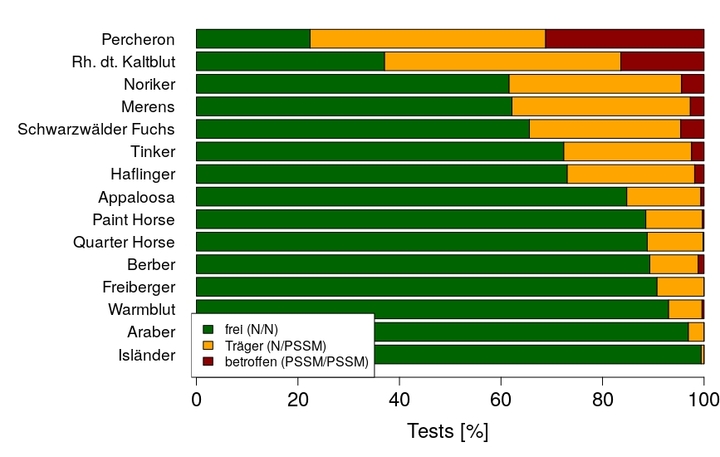Spread of PSSM in different breeds
Polysaccharide storage myopathy type 1 is a hereditary disorder of sugar metabolism. The clinical symptoms are “cross-flap-like” and cover the entire spectrum from reluctance to move, muscle tremors, muscle stiffness, sweating, alternating lameness to immobility. PSSM is inherited in an autosomal dominant manner.
This means that heterozygous carriers (genotype N/PPSM) also have an increased risk of developing the disease, while homozygotes (genotype PSSM/PSSM) are more severely affected than heterozygotes. The genetic test can also be used to confirm a suspected diagnosis.
The PSSM test was developed at the University of Minnesota and is patented in Europe. Laboklin is the exclusive license holder.
PSSM was initially regarded as a disease of Western horses (Quarter Horse, Paint Horse and Appaloosa), but the causative mutation goes back a long way, so that this gene variant occurs in many different horse breeds. In warmblood horses, for example, it has been shown in recent years that approx. 5% of the horses tested were heterozygous carriers (N/PPSM) and just under 1% were homozygous (PSSM/PSSM).
In the overall population, the allele frequency is probably somewhat lower in some breeds where the test is not mandatory, as some horses may only have been tested due to clinical suspicion.





